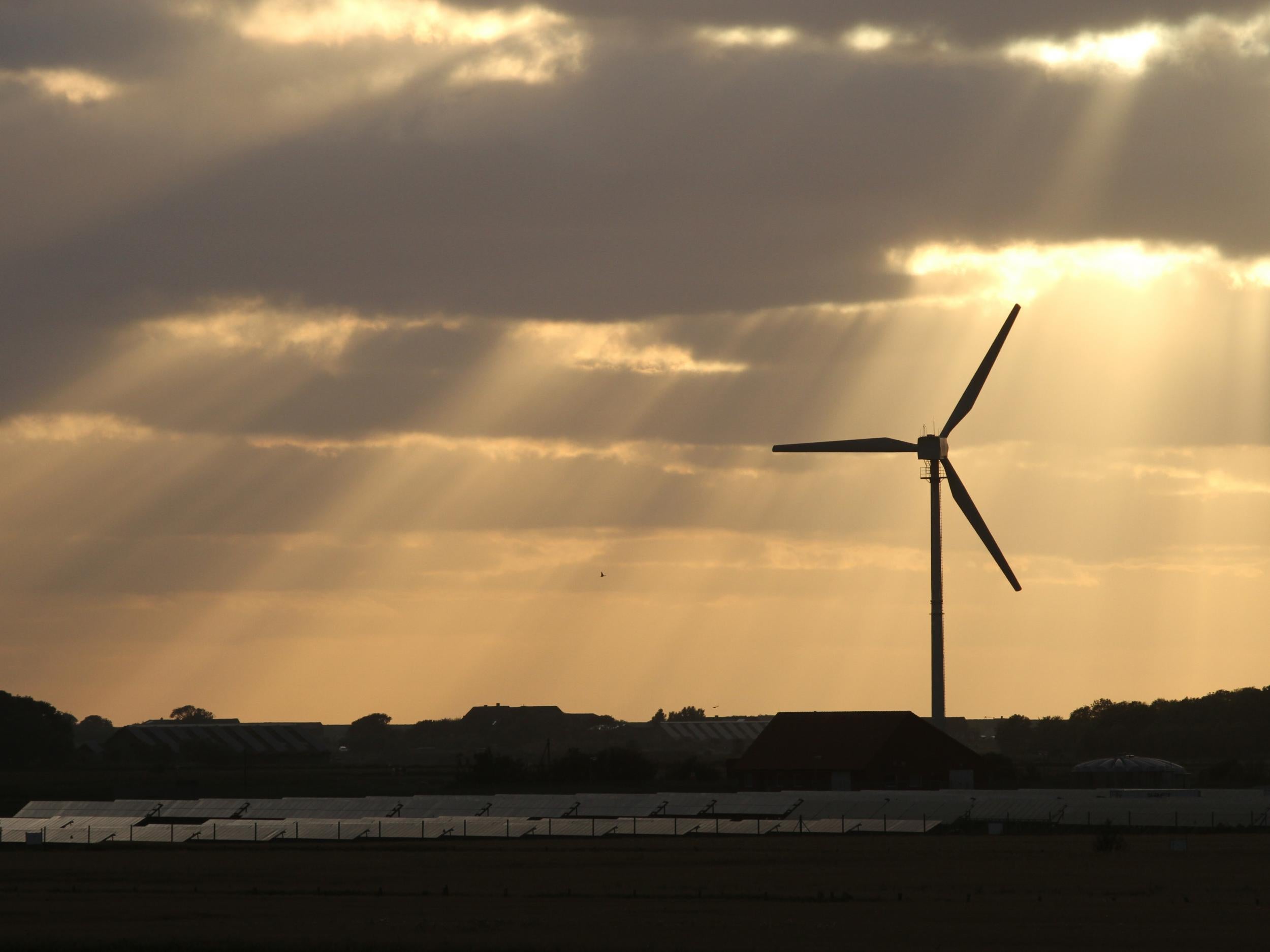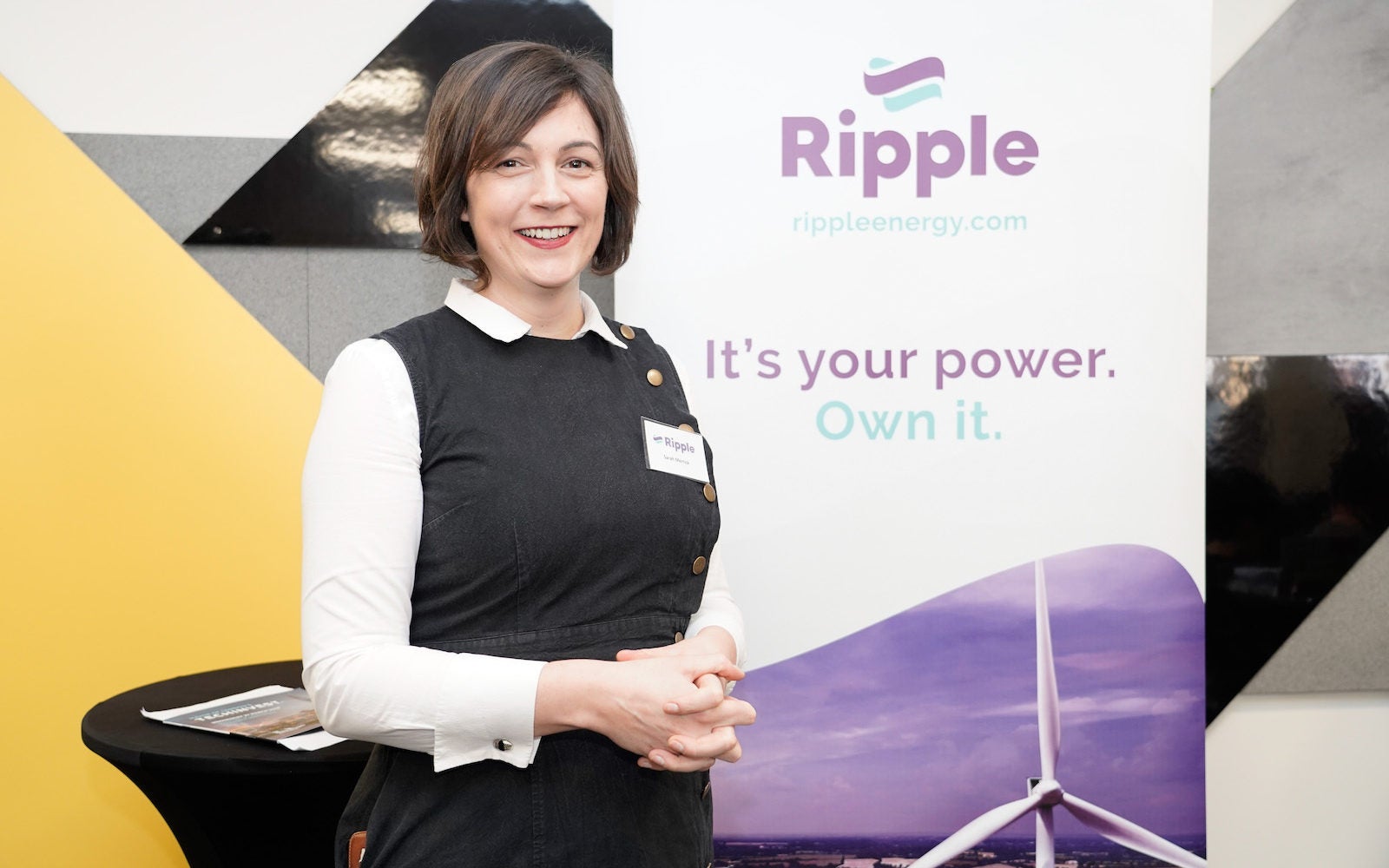Invest directly in new wind farms while saving on energy bills with new UK start-up
Ripple Energy aims to put wind power in the hands of the people while giving them cheap, reliable energy at a stable price

Your support helps us to tell the story
From reproductive rights to climate change to Big Tech, The Independent is on the ground when the story is developing. Whether it's investigating the financials of Elon Musk's pro-Trump PAC or producing our latest documentary, 'The A Word', which shines a light on the American women fighting for reproductive rights, we know how important it is to parse out the facts from the messaging.
At such a critical moment in US history, we need reporters on the ground. Your donation allows us to keep sending journalists to speak to both sides of the story.
The Independent is trusted by Americans across the entire political spectrum. And unlike many other quality news outlets, we choose not to lock Americans out of our reporting and analysis with paywalls. We believe quality journalism should be available to everyone, paid for by those who can afford it.
Your support makes all the difference.Britain is home to a resource that’s enormously abundant, produces electricity much more cheaply than oil or gas, emits no carbon dioxide and – unlike fossil fuels – involves no devil’s bargain with regimes like Putin’s Russia or the kingdom of Saudi Arabia.
Wind energy produced locally could supply the majority of the UK’s electricity needs, yet there is no gold rush around this valuable energy source. Yes, wind is growing in importance as a way of powering our homes and businesses, but, worryingly, last year investment in renewable energy dropped to its lowest in a decade.
Recent headlines have pointed to Britain going “coal-free” for almost four days – the longest period since the Industrial Revolution – but much of the energy we consumed instead of coal came from gas or was imported from overseas.
These stories hide the fact that green energy subsidies have been ditched and the government has been accused of creating a “hostile environment” for the new renewable generation.
Even if the future of the planet wasn’t at stake, this would be a criminal underinvestment in an area where Britain has a clear inbuilt natural advantage.
All of this might be enough to switch people off the topic. But fortunately, into the lamentable void has stepped a bold new start-up with a new idea that we should all take note of.
Ripple Energy gives UK consumers the chance to bypass big suppliers with their ripoff tariffs and overpaid execs. Instead of waiting for stuck-in-the-mud ministers to take the action to support the transition away from fossil fuels Ripple allows consumers to directly fund cheap, clean, renewable energy, in a simple way.
As consumers, we stand to save £85 to £175 a year on our energy bills while funding the expansion of the cleanest, cheapest, safest energy currently available produced right here on our shores.
Here’s the offer: you put in around £1,300 for a stake in a new onshore wind farm. You can invest more if you want but this is the amount Ripple reckons will give you the amount of energy needed for an average home.
For that you get electricity at a low price which will remain stable for the entire 25-year lifespan of a wind farm rather than seeing bills shoot up based on the whims of global energy markets.
It’s simple to sign up online. Enter a few details such as where you live and how big your house is. After that you agree to become a member of what’s known as a Community Benefit Society. It’s like a company but, in keeping with its name, it benefits the wider world rather than just its shareholders.
You can get involved in the society if you want but this is by no means an obligation. Ripple will run things and you’ll get a bill from one of the two suppliers the company is currently working with.
The whole idea came about because, after 18 years working in renewable energy, Ripple founder Sarah Merrick saw a huge and unnecessary gap in the market.
“People love wind power”, says Merrick. “But it’s not that easy for them to get it.” There are green energy tariffs but these mostly serve to reallocate existing renewable supply amongst different customers. By contrast, Ripple sources new money to promote the construction of extra wind capacity.
Big firms have been pumping money into their own renewable energy projects for several years, but it’s so far been pretty much off-limits to the consumers.

“It’s great that companies like Google and Ikea can access cheap renewable energy,” says Merrick. “But we think everyone should be able to do that.”
“When you work out the numbers it’s pretty simple and even people who have worked in renewable energy for a long time are surprised.”
Ripple is currently crowdfunding to support its growth as it works towards its first project – a single wind turbine that will supply around 800 homes.
It’s been so popular that after a week Ripple is already at close to two-thirds of its £750,000 target.
The crowdfunder will enable Ripple to complete the development of its clean energy ownership platform and market its first pilot project later this year. Merrick is now eyeing up a 20-megawatt farm that will provide power to around 18,000 households.
As well as cheaper bills Ripple offers something else that is extremely valuable in the face of political inaction. As thousands of protesters take to Britain’s streets to protest and demand a “Citizens Assembly” on climate change, Ripple presents a way of democratising the ownership of energy, our most crucial resource.
“We don’t think that in the future people will need big utilities, or pensions funds for that matter, to own renewable energy supply,” says Merrick.
“They can do it themselves.”
Join our commenting forum
Join thought-provoking conversations, follow other Independent readers and see their replies
Comments